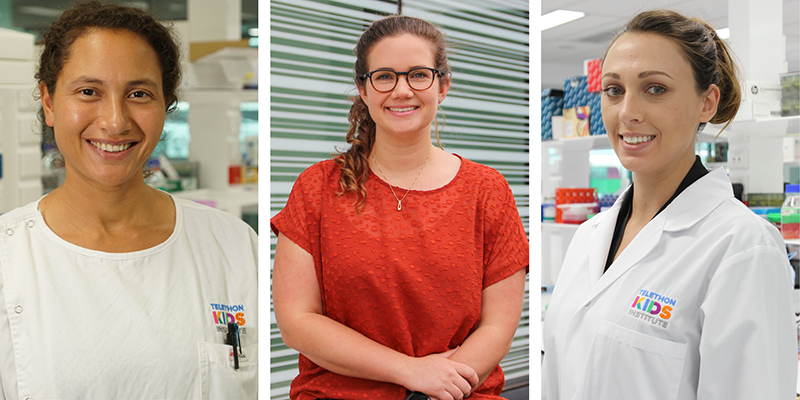Search
Showing results for "A"
Research
Parenting adolescents: Developing Strategies for FIFO parentsThis study was to explore the parenting patterns of families exposed to the fly-in-fly-out (FIFO) work pattern in raising adolescent children...
Research
The effect of siblings and family dog ownership on children's independent mobility to neighbourhood destinationsEffects of siblings and dog ownership on children's independent mobility
Research
High-throughput quantitative N-glycan analysis of glycoproteinsThis chapter describes in detail four methods to release N-glycans from the glycoprotein of interest.

News & Events
Raine Foundation grants to support key child health researchThree outstanding young researchers from The Kids Research Institute Australia have been named Raine Fellows and received valuable Raine Priming Grants to support their child health research.

Genuine partnerships require mutual value, and the Institute is committed to supporting our Supply Partners through a range of initiatives.
Research
Recent changes in IVF clinical practice: data linkage to investigate their impact on fetal growth and birth defectsCarol Bower MBBS MSc PhD FAFPHM DLSHTM FPHA Honorary Emeritus Fellow 08 6319 1813 carol.bower@thekids.org.au Senior Principal Research Fellow;

News & Events
Family history drives studyA family link to type 1 diabetes has seen twins Nina and Lara Buonvecchi pursue study in health science – and join the Children’s Diabetes Centre to complete their pracs.

News & Events
WATCH: Finding our Voice webinarPresenters for the Finding our Voice webinar held at The Kids Research Institute Australia on Tuesday 21 May.
Research
Ultraviolet irradiation of mice reduces the competency of bone marrow-derived CD11c+Direct UV irradiation of dendritic cells and Langerhans cells reduces their Ag presenting ability. However, the effects of UV on CD11c(+) cells located...
Research
Dietary glycaemic carbohydrate in relation to the metabolic syndrome in adolescents:High dietary glycaemic carbohydrate, as measured by the dietary glycaemic index and glycaemic load has been associated with increased risk of the metabolic synd
